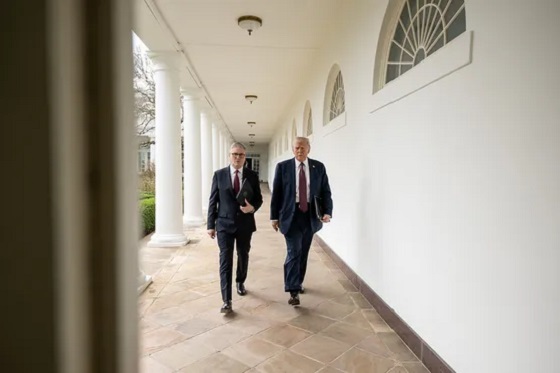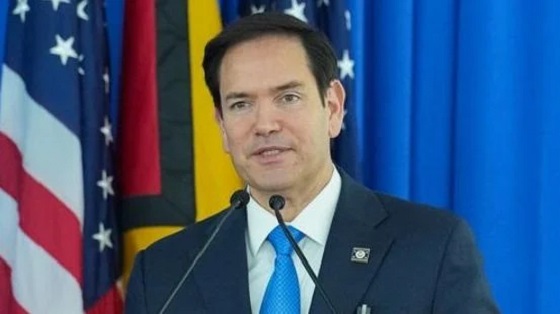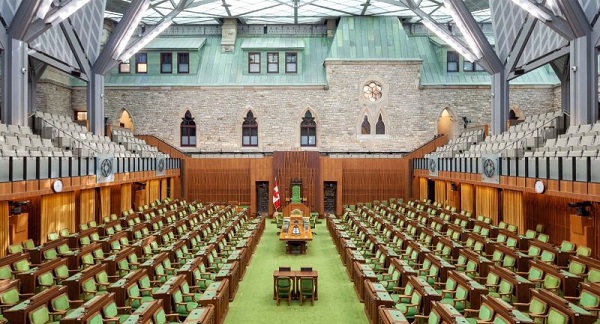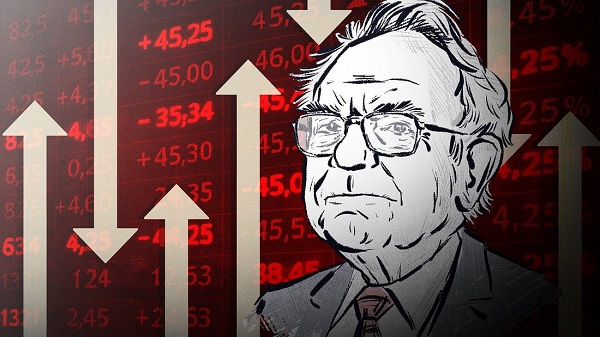Censorship Industrial Complex
Trump admin probing U.K.’s crackdown on free speech

Quick Hit:
The Trump administration quietly dispatched U.S. diplomats to Britain in March to investigate growing free speech concerns. According to The Telegraph, they met with pro-life campaigners arrested for silent prayer and questioned UK officials about internet speech laws.
Key Details:
-
A five-person U.S. delegation visited Britain in March to probe free speech issues, meeting activists like 74-year-old Rose Docherty, arrested for silently praying outside an abortion clinic.
-
The team also met with UK Foreign Office officials and Ofcom, which now polices online content under the country’s Online Safety Act.
-
In February, Vice President JD Vance warned free speech is “in retreat” in Europe and pointed to arrests of pro-life demonstrators in the UK.
Diving Deeper:
According to The Telegraph, the Trump administration sent a team from the State Department’s Bureau of Democracy, Human Rights, and Labor to Britain in March for meetings with victims of what the administration views as increasingly authoritarian speech restrictions. The diplomats reportedly engaged with pro-life campaigners, including 74-year-old Rose Docherty, who was arrested for quietly praying near an abortion facility under the UK’s controversial “buffer zone” law.
“I didn’t break the law, I didn’t influence, I didn’t harass, I didn’t intimidate,” Docherty told reporters. “This can’t be just. It’s heartening that others around the world, including the U.S. government, have realised this injustice and voiced their support.”
The U.S. team also met with British government officials, including members of the Foreign Office and Ofcom. Ofcom’s growing authority over digital speech, enhanced under the UK’s new Online Safety Act, has become a flashpoint between Washington and London. The legislation allows British regulators to impose large fines on American tech companies for failing to adequately monitor and censor online content—a power U.S. officials say could have serious consequences for American firms and speech protections.
Vice President JD Vance spotlighted the issue during his speech at the Munich Security Conference in February, calling out the United Kingdom by name. “I look to our very dear friends, the United Kingdom, where the backslide away from conscience rights has placed the basic liberties of religious Britons, in particular, in the crosshairs,” he said. Vance specifically cited cases like Docherty’s, warning of a broader erosion of fundamental rights across Europe.
The administration’s concerns extend beyond religious liberty. The case of Lucy Connolly, a 42-year-old British mother sentenced to 31 months in prison for social media posts after a horrific mass killing in Southport, has also attracted attention from Trump allies. Reform UK leader Nigel Farage, a longtime ally of President Trump, described the case as emblematic of a “two-tier Britain” and claimed, “My American friends cannot believe what is happening in the UK.”
Despite mounting criticism, British Prime Minister Sir Keir Starmer has denied there is a crisis. In a February meeting with President Trump at the White House, Starmer said, “We’ve had free speech for a very, very long time in the United Kingdom, and it will last for a very, very long time.”
That reassurance hasn’t quieted concerns. A separate report from The Times of London in March found that British police make more than 30 arrests every day over alleged offensive online or public statements—amounting to approximately 12,000 arrests annually.
Business
U.S. to deny visas to foreign censorship enforcers under new Rubio-led policy

 MxM News
MxM News
Quick Hit:
Secretary of State Marco Rubio announced a new U.S. policy to deny visas to foreign officials who pressure American tech firms to censor content. The move is the latest in a series of actions aimed at dismantling what the administration calls the “global censorship-industrial complex.”
Key Details:
- Visa bans will apply to foreign officials and their families involved in censorship targeting U.S. citizens, companies, or residents.
- Justice Alexandre de Moraes of Brazil and EU Digital Services Act (DSA) officials could be among those affected.
- The policy follows the shutdown of the State Department’s Global Engagement Center and a broader crackdown on foreign speech controls.
Around the world, governments are threatening & censoring US social media platforms for legal speech. Now, @SecRubio @StateDept says it will deny visas to foreign nationals engaged in censorship against Americans, US tech companies, and people posting from inside the US. pic.twitter.com/24g0EdHLyx
— Michael Shellenberger (@shellenberger) May 28, 2025
Diving Deeper:
The United States will begin denying entry visas to foreign officials who attempt to censor American citizens or pressure U.S. tech companies to suppress free speech. The policy, unveiled by Secretary of State Marco Rubio, marks the most aggressive push yet by the Trump administration to confront what it calls “global censorship collusion.”
The new policy, enabled under provisions of the Immigration and Nationality Act, applies not just to the offending officials but also to their immediate families. It targets those responsible for direct censorship, those who engage in lawfare to silence political dissent, and those who try to export censorship mandates into American digital platforms.
While State Department officials were careful not to name specific individuals, the measure could impact Brazilian Supreme Court Justice Alexandre de Moraes—widely criticized for ordering the censorship of political opponents—and senior officials in the European Union overseeing the controversial Digital Services Act. The DSA has drawn backlash from U.S. leaders for its sweeping influence over American-based companies like Google, Meta, and X.
Rubio, who has led a significant shift in U.S. foreign policy priorities since assuming office at Foggy Bottom, previously shut down the State Department’s Global Engagement Center. That office had funneled taxpayer money to NGOs like the UK-based Global Disinformation Index, which was implicated in censorship pressure campaigns linked to U.S. intelligence entities.
Just last week, the State Department hinted at potential Magnitsky Act sanctions against Moraes, whose aggressive speech controls in Brazil have become a global case study in judicial overreach. The Justice Committee in Congress also approved legislation aimed at banning him from entering the United States.
As part of the administration’s strategic realignment, Acting Undersecretary of State for Public Diplomacy Darren Beattie has been tasked with leading efforts to protect American free speech interests abroad. “Obviously, we don’t love the idea of the Europeans censoring their own citizens,” Beattie told The Wall Street Journal, “but the principal concern is these spillover effects affecting content-moderation policies and a variety of free-speech concerns within the United States.”
The administration’s stance is that U.S. free speech is not just a domestic issue but a strategic priority. A recent State Department communication said the U.S. “is committed to shutting down the global censorship-industrial complex.”
Under the new visa policy, sanctions could also apply to officials who threaten arrests or asset seizures against tech companies, or demand that U.S.-based firms alter content moderation policies in line with foreign censorship laws. It further covers foreign actors who try to punish U.S. residents for online speech, or order tech platforms to withhold payments to users in retaliation for political or social commentary.
The announcement is backed by the America First Policy Directive, an executive order signed by President Donald Trump in January, which declared that the protection of American citizens and their rights must remain a central objective of U.S. foreign policy.
The administration has made clear that it sees free speech not only as a constitutional right but also as a geopolitical asset. Vice President J.D. Vance, speaking at the Munich Security Conference in February, warned against the rise of censorship regimes in Europe targeting populist movements like that of Marine Le Pen in France.
(AP Photo/Jacquelyn Martin, Pool)
Censorship Industrial Complex
Canada’s PM Mark Carney Revives Online Censorship Agenda

-

 Fraser Institute2 days ago
Fraser Institute2 days agoFederal government’s ‘affordable housing’ strategy doomed without strong income growth
-

 Health2 days ago
Health2 days ago21 Canadian doctors demand review of transgender drugs, surgeries for children
-

 Alberta2 days ago
Alberta2 days agoAlberta providing additional $7 million to Grande Prairie to help transition to municipal police service
-

 COVID-191 day ago
COVID-191 day agoDr. Malone: Trump admin takes step in right direction with new COVID shot guidance
-

 Carbon Tax2 days ago
Carbon Tax2 days agoCarney picks up Trudeau’s net-zero wrecking ball
-

 Business19 hours ago
Business19 hours agoCarney government’s throne speech—different delivery, same old approach to policy
-

 Energy1 day ago
Energy1 day agoOttawa’s mixed signals create more uncertainty in energy sector
-

 COVID-192 days ago
COVID-192 days agoCDC no longer recommending COVID shots for healthy pregnant women, children





